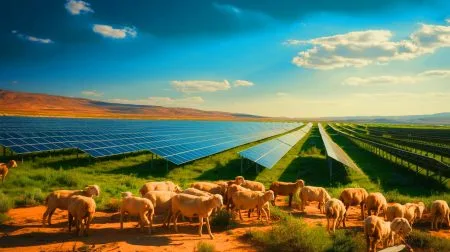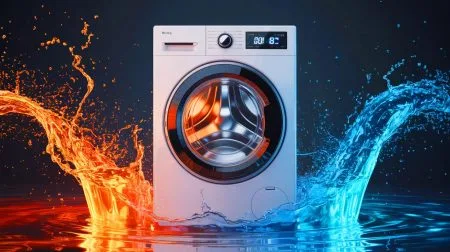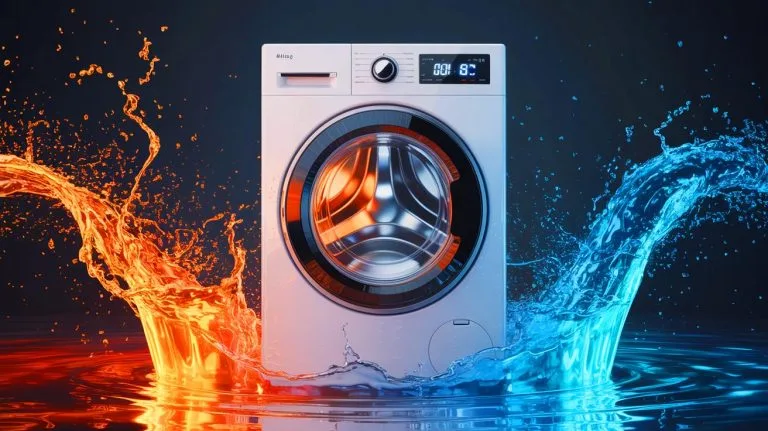| IN A NUTSHELL |
|
In today’s fast-paced world, washing machine efficiency is more crucial than ever, both for environmental sustainability and household budgets. While the allure of a quick wash cycle is tempting, many may not realize that this option might not be as cost-effective or eco-friendly as one would hope. Recent insights from appliance experts reveal that the rapid wash cycle, a common feature in modern washing machines, is one of the most resource-exhaustive programs available. This raises important questions about the true cost of convenience and whether quick cycles are worth the trade-off in energy and water consumption.
The Misleading Appeal of Quick Wash Cycles
The quick wash cycle is marketed as a time-saving solution for busy individuals, promising clean clothes in a fraction of the time. However, this convenience comes at a price—higher water and electricity usage. Despite its short duration, the quick wash cycle often requires more resources to achieve satisfactory cleaning results. This is because the shorter wash time necessitates more vigorous action and higher temperatures, which in turn consume more energy.
Interestingly, many modern washing machines are equipped with displays or apps that estimate the water and energy consumption of different cycles. Users can easily see that when switching to a quick wash, the estimated consumption rates spike. This evidence suggests that the quick wash cycle is less efficient compared to longer, more conventional cycles, which are designed to optimize water and energy use.
Anurag Bajpayee’s Gradiant: Engineering the Future of Industrial Water
The Environmental and Financial Costs
The environmental impact of using quick wash cycles is significant. Each cycle might involve using more water and energy than necessary, contributing to higher utility bills and increased environmental degradation. For households looking to reduce their ecological footprint, relying on quick wash cycles can be counterproductive. The frequent use of such cycles can lead to greater consumption of natural resources, which is contrary to the principles of sustainable living.
Financially, the implications are also considerable. Over time, the increased consumption of water and electricity can lead to noticeably higher utility bills. This is compounded by the fact that quick cycles are often used to wash smaller loads, which means that the machine is not running at its most efficient capacity. A half-empty drum not only wastes resources but also affects the machine’s overall performance and longevity.
Insights from Appliance Experts
Appliance specialists are increasingly advising against the frequent use of quick wash cycles. According to one technician, these cycles do not belong to the category of programs optimized for efficiency. The promise of quick cleaning is alluring, but the hidden costs are substantial. Technicians recommend exploring other cycle options that provide better efficiency without compromising cleanliness.
“Even though the quick wash cycle promises clean clothes in minutes, it’s not the most resource-efficient choice,” an expert notes.
https://www.sustainability-times.com/energy/americas-fastest-train-hits-161-mph-nextgen-acela-finally-brings-high-speed-rail-to-us-while-french-engineers-create-95-american-made-marvel-in-new-york-factory/
This statement underscores the importance of making informed decisions when it comes to appliance use. By understanding the true cost of quick cycles, consumers can make choices that align with both their financial goals and environmental values.
Alternatives to Quick Wash Cycles
There are several alternatives to using quick wash cycles that can help achieve a balance between convenience and efficiency. Many washing machines offer eco-friendly cycles designed to minimize water and energy use while still ensuring thorough cleaning. These cycles might take longer but are generally more effective in terms of resource consumption.
Another strategy is to wash full loads whenever possible. This not only maximizes the efficiency of each cycle but also reduces the frequency of washes, further conserving resources. Additionally, adjusting settings such as temperature and spin speed can also contribute to more sustainable washing practices.
The notion of convenience in household appliances is constantly evolving, and with it, our understanding of their impact. While quick wash cycles offer the promise of speed, their environmental and financial costs prompt a reevaluation of their use. As consumers, are we willing to trade a few extra minutes for a more sustainable future? The decision ultimately lies with us, and it is worth considering the broader implications of our everyday choices.
Did you like it? 4.5/5 (23)







Wow, I had no idea quick wash cycles were such resource hogs! Thanks for the info. 🌍
Why do quick cycles use more water? 💦 I thought they were supposed to save time and resources?
Thanks for the insights! I always use quick wash and never realized it was so resource-intensive.
Does anyone know if there are specific brands that have more efficient quick wash options?
Wait a minute, more energy for a quicker wash? Sounds counterintuitive! 🤔
Quick wash cycle? More like quick cash cycle for utility companies! 😅
This is eye-opening. Now I need to rethink my laundry habits. 😅
Is there a way to adjust the settings so quick cycles use less water?
Can you provide more details about the eco-friendly cycles mentioned?
Great article! I’ll definitely think twice before using the quick wash from now on.
Finally, someone explains why my bills are so high! 😫
I’ll admit, I’m guilty of using quick wash for everything. Time for a change!
Why are manufacturers still promoting quick cycles if they’re so wasteful?
Great article! But what about the quality of cleaning with eco-friendly cycles?